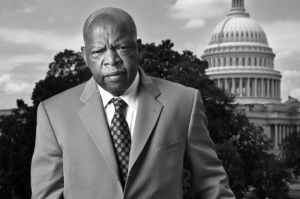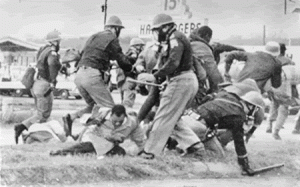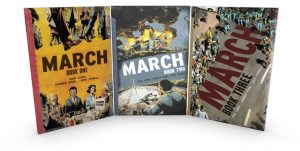
I lived a sheltered childhood in a small, virtually all-white Wisconsin town in the 1960s. The tumult of the decade reached me only when my parents had the television turned to the CBS nightly news with Walter Cronkite. I was 11 when the country was torn apart by the assassinations of Martin Luther King and Robert Kennedy.
I remember feeling so sad watching the news reports, even though I didn’t quite understand what was going on. My desire to grasp what had happened was helped when my small grade school offered students to participate in the Scholastic Book Club, where we could buy books for a nominal price. I purchased a biography of Martin Luther King, which changed my life. I remember doing a book report on King and his fight to use non-violent civil disobedience to fight segregation in the South. This book opened up a little girl’s eyes to the pain and suffering American citizens endured just to be able to eat at a diner or use bathrooms marked “Whites Only.’’ I discovered how books were more than just entertaining — they could inform and create empathy for other people’s struggles. Realizing this made me want to read even more.

This last month I revisited the Civil Rights Movement through the eyes of a great man who was an integral part of it. Georgia U.S. Rep. John Lewis, who now is 76, was a college student when he risked his life and was arrested repeatedly and beaten while protesting the Jim Crow laws of the South. He is the only person still alive who spoke at the march on Washington D.C. in 1963 when King gave his historic “I Have a Dream’’ speech. Lewis teamed up with author Andrew Ayden and artist Nate Powell to tell his moving memoir in comic book form of that time in a magnificent trilogy called March.

In these books, Lewis recalls the day when the first black president of the United States was inaugurated while flashing back to the struggles people endured in the 1960s South. He talks about the courageous men and women who fought for the right to vote and sit in any seat on a bus. He also provides accounts of the inner conflicts that emerged within the movement of what strategies to take, when volunteers were getting jailed, beaten and murdered. I still am amazed at how these brave protesters continued their efforts despite the brutality they faced. King called them “saints in ordinary life.’’
I learned details I had never known about the struggle to end racial segregation and discrimination from this moving memoir trilogy. The artwork adds so much to Lewis’ powerful memories. If you never read a book in comic form, this is a perfect way to start. I strongly recommend this important work to both adults and young people alike. Lewis’ life experiences fighting prejudice and hate are as relevant today as they were in the 1960s.
Categories: Books and More
Tags: Books and More
